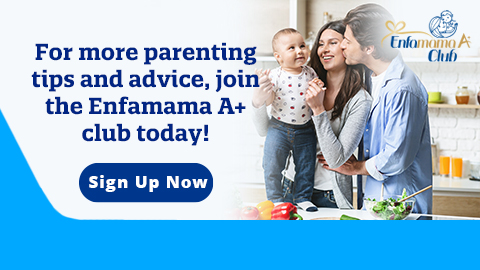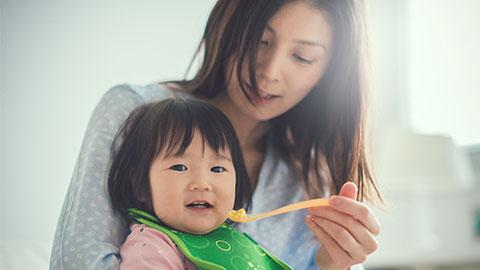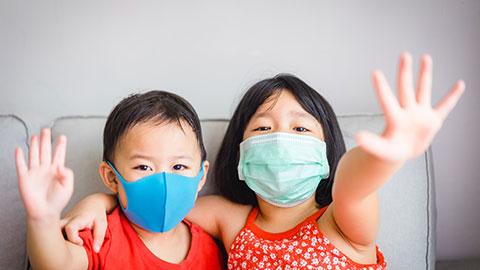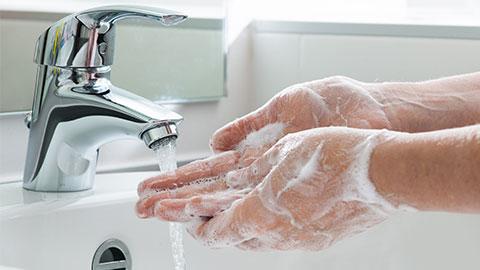Breastfeeding, among other things, can become a challenge when discussing the topic of covid and pregnancy. You are probably extremely concerned about the possibility of contracting coronavirus and the impact that it could have on the health of your baby. Here are some things to know that can keep your mind at ease.
Covid and pregnancy: Risk levels when you are pregnant
As you may have heard or read, although the “coronavirus family” is well-known to science, little is known about COVID-19 specifically, as it is a recent mutation.
For this reason alone, it is not yet clear if pregnant women are more at risk of COVID-19 infection than others1,2.
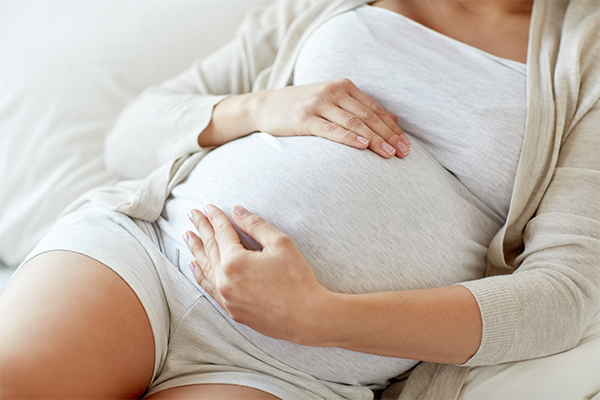
What is understood is that pregnant women are more likely to contract influenza (caused by another class of virus) and infections caused by viruses of the same family as COVID-19.
Thus, it is reasonable to be cautious and act under the assumption that there is a possibility of infection. One must take all possible preventive measures during pregnancy to minimise the risk.
Here are some simple measures that you can follow to ensure you keep abreast on how to deal with covid and pregnancy.
- Maintain good hygiene, wash your hands frequently, use sanitising gel and clean the surfaces of your house.
- Do not leave home if it is not essential and definitely avoid crowded places.
- Avoid hosting guests, if at all possible.
- To maintain a healthy immune system, make sure to eat nutritious foods and get enough sleep.

If infected, would COVID-19 affect your baby?
Several recent studies indicate that the virus does not pass into the placenta or amniotic fluid3 and, until now, all babies born to mothers with the virus have been born healthy4,5.
However, what is not known at the moment is the impact the infection could have on the baby if it is contracted at the onset of the pregnancy. Since the virus is relatively young, no such study has been conducted. Therefore, prevention is currently the recommended course of action.
Covid and breastfeeding: Is it safe for my baby?
Covid and breastfeeding is a pertinent topic when discussing pregnancy. No trace of the virus has been found in the milk of infected mothers, according to investigations that have been conducted so far. For the moment, everything indicates to COVID-19 not spreading through breastfeeding6.
Many experts agree that the best course of action is to continue breastfeeding the baby even if the mother has the infection7. Breast milk does not appear to be a source of coronavirus transmission to babies. If you have COVID-19, breastfeeding is safe, say the experts9.
If you were to get infected, your body would create a set of specific antibodies that would pass into your milk in order to protect your baby. In other words, the infection in the mother's body causes her milk to protect the baby from the virus.
However, do remember that even if your baby has the additional protection provided by your milk, if you are carrying the infection, you still need to protect him or her from your sneezes or coughs. Even touching or handling the baby should only be done after your hands are washed and sanitised.
To prevent your baby from getting infected, you should use masks and face shields when breastfeeding and practice the highest levels of hygiene. You also have the option of expressing milk and having someone else bottle feed your baby.
Covid vaccine for pregnancy and during breastfeeding
Pregnant women who contract COVID-19 may experience a rapid decline in their health, which could also have an impact on the foetus. According to experts, the advantages of vaccination for expectant mothers outweigh any potential hazards. Pregnant women should maintain their COVID-19 vaccination schedule and receive a COVID-19 booster dose as necessary.
The amount of evidence demonstrating that COVID-19 vaccination during pregnancy is safe and effective, keeps growing. Getting vaccinated against COVID-19 can prevent you from becoming seriously ill from the disease, and keeping you as well as possible during pregnancy is crucial for the wellbeing of your unborn child. Those who are expecting, nursing, attempting to conceive, or who may do so in the future, should receive the COVID-19 vaccination, according to the experts, who also advise obtaining booster shots, if necessary8.
In case of any doubt please consult your doctor or health professional who will advise you on the best way forward, both for your health and for that of your baby; as well as for the rest of your family.
Take care!
Maintaining good nutrition is important for you and the development of your baby. Enfamama A+ with 360° DHA PLUS is a high quality milk supplement specially formulated for pregnant moms. Request for free Enfamama A+ samples to support your pregnancy nutritional needs.
If you are interested in knowing more about the myths and realities of COVID-19.
References:
1. Centers for Disease Control and Prevention (CDC; 17 February 2020). Frequently Asked Questions and Answers: Coronavirus Disease 2019 (COVID-19) and Pregnancy. Accessed 20 February 2020 via: https://www.cdc.gov/coronavirus/2019-ncov/specific-groups/pregnancy-faq....
2. Centers for Disease Control and Prevention (CDC; 15 February 2020). Coronavirus Disease 2019 (COVID-19): Frequently Asked Questions and Answers. . Accessed 19 February 2020 via: https://www.cdc.gov/coronavirus/2019-ncov/faq.html
3. Chen H, Guo J, Wang C, et al. Clinical characteristics and intrauterine vertical transmission potential of COVID-19 infection in nine pregnant women: a retrospective review of medical records. Lancet 2020; Published 12 February 2020. Available at: https://www.doi.org/ (20)30360-3
4. Lam, C.M., Wong, S.F., Leung, T.N., Chow, K.M., Yu, W.C., Wong, T.Y., Lai, S.T. and Ho, L.C. (2004), A case-controlled study comparing clinical course and outcomes of pregnant and nonpregnant women with severe acute respiratory syndrome. BJOG: An International Journal of Obstetrics & Gynaecology, 111: 771-774.
5. Shek CC, Ng PC, Fung GP, et al. Infants born to mothers with severe acute respiratory syndrome. Pediatrics 2003; 112: e254. UNICEF (February 2020). Coronavirus disease (COVID-19): What parents should know. Accessed 18 February 2020 via : https://www.unicef.org/es/historias/coronavirus-lo-que-los-padres-deben-...
6. Redigolo T. Coronavirus with a baby: Can I breastfeed while infected with COVID-19? Express Online. 13 March 2020. https://www.express.co.uk/life-style/health/1255041/Coronavirus-babies-n... (Accessed 16 March 2020).
7. Center for Disease Control. COVID-19 Pregnancy & Breastfeeding, Information about Coronavirus Disease. 2020 https://www.cdc.gov/coronavirus/2019-ncov/prepare/pregnancy-breastfeedin... (Accessed 20 March 2020).
8. Centre for disease control and prevention. Last Updated July 14, 2022 Content source: National Center for Immunization and Respiratory Diseases (NCIRD), Division of Viral Diseases https://www.cdc.gov/coronavirus/2019-ncov/vaccines/recommendations/pregn...
9. Is it Safe to Breastfeed if I Have Coronavirus (COVID-19)? Reviewed by: Elana Pearl Ben-Joseph, MD https://kidshealth.org/en/parents/coronavirus-breastfeeding.html


